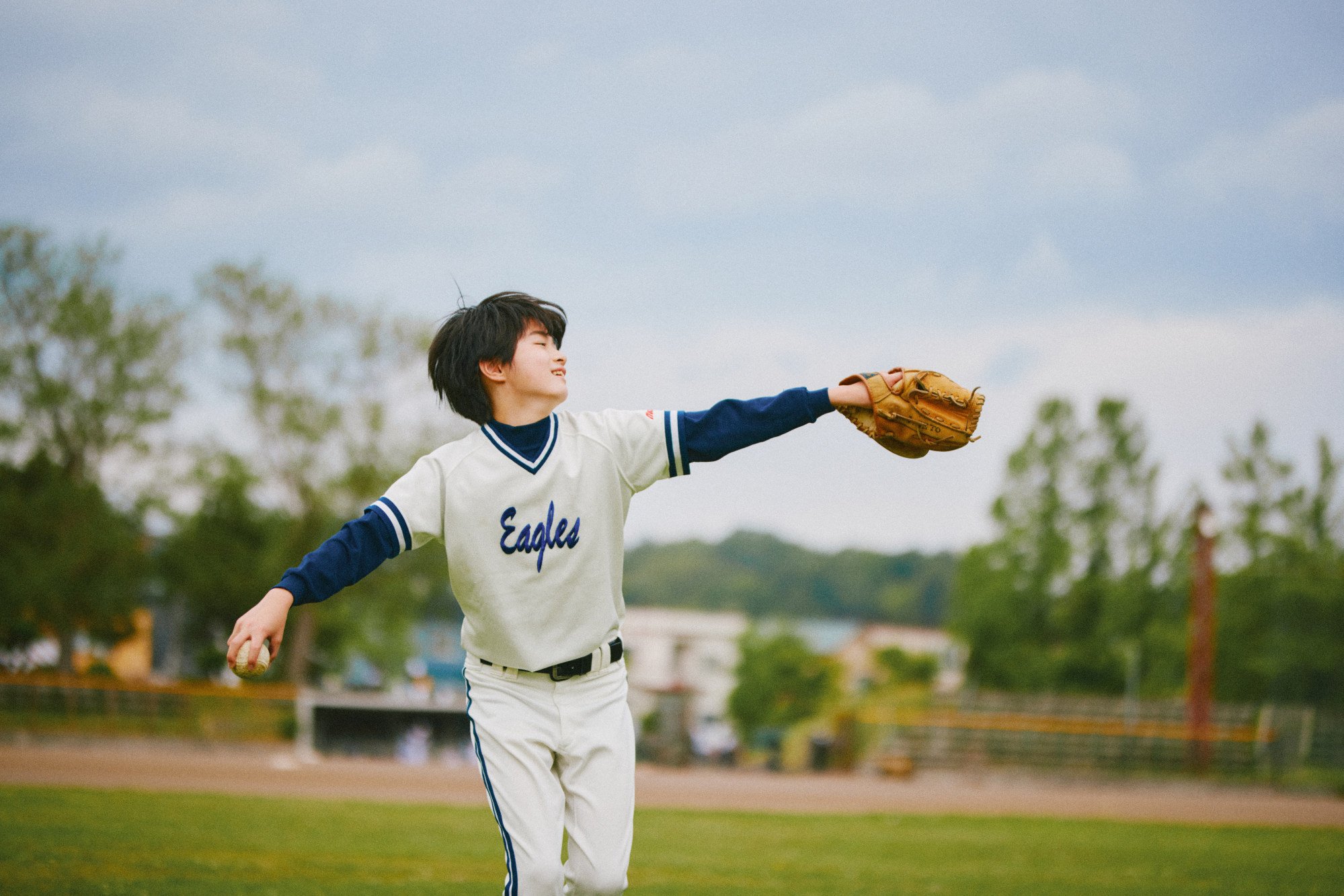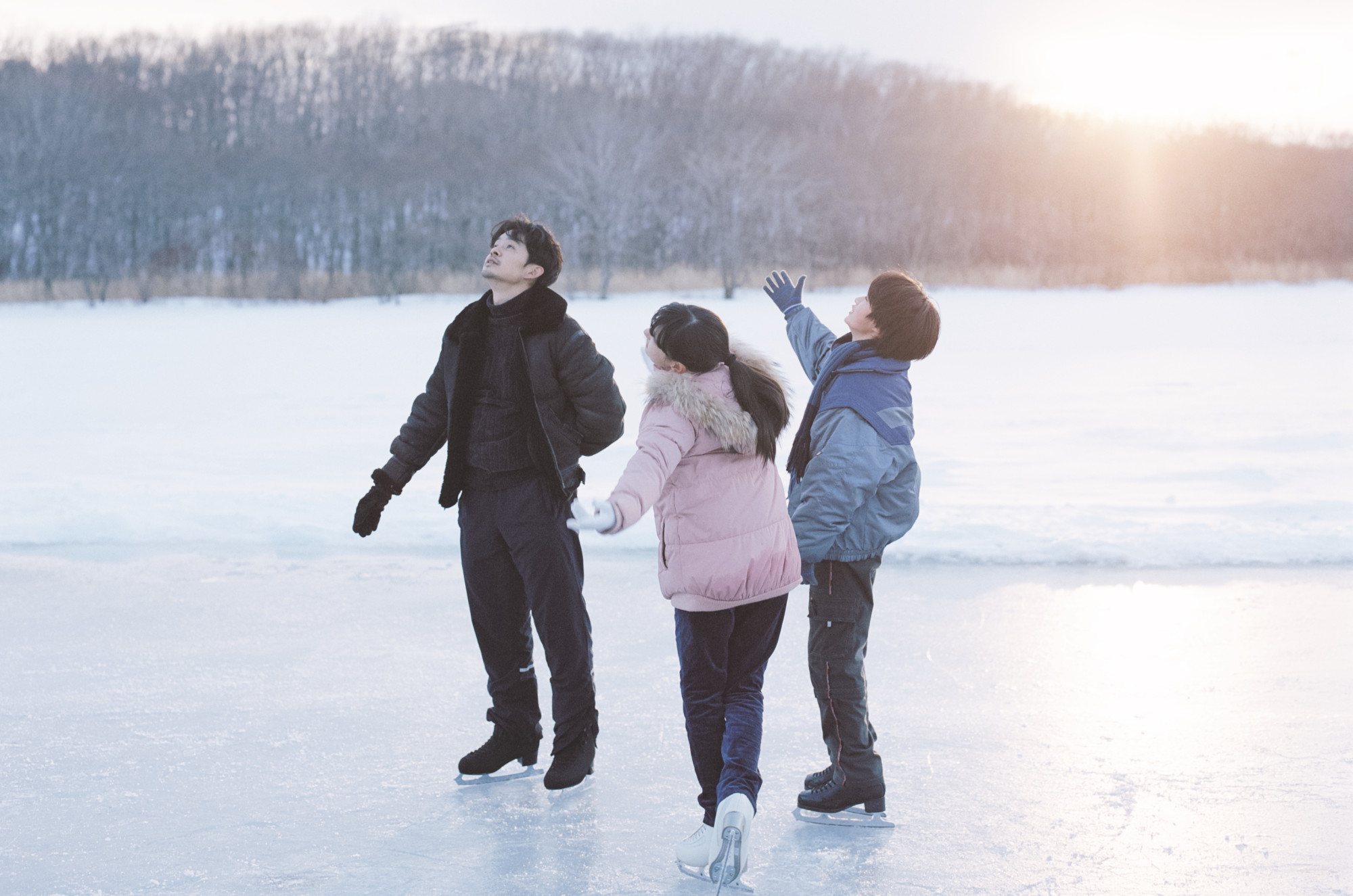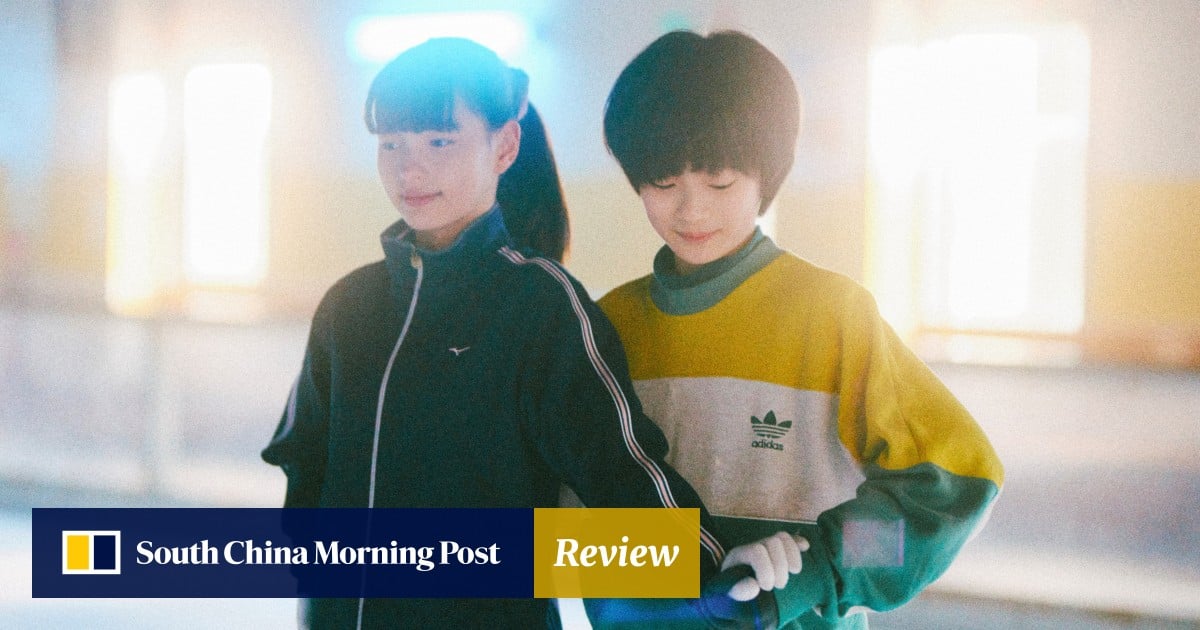4/5 stars
Rarely has figure skating been shown as so pure, poetic and sensual than in My Sunshine, Hiroshi Okuyama’s feature about two young ice dancers and their coach over one winter in a small town in Hokkaido, in Japan.
Filmed in the classic four-by-three screen ratio and boasting a desaturated colour palette which gives everything a dreamy quality, My Sunshine revolves around Takuya (Keitatsu Koshiyama), a stammering boy who is as awkward at sport as he is with his speech.

Bad at school in both baseball and ice hockey, the boy finds himself captivated by figure skating – or, specifically, the elegant star skater Sakura (Kiara Nakanishi). His perseverance in trying out pirouettes is noted by the girl’s coach Arakawa (Sosuke Ikematsu), who gives the boy proper skates and then private lessons.
Sensing a prodigy in the waiting, Arakawa begins to train Takuya alongside Sakura to compete in a pairs skating competition. Through this, the man rediscovers the joie de vivre he seems to have left behind after his retirement and relocation to the rural hinterlands.
Teasing natural and dynamic turns from his cast – with Sosuke looking very much the part with his smooth moves on the ice – Okuyama delivers scenes that ooze youthful energy and human warmth.
In the film’s pièce de resistance, a scene depicting Takuya and Sakura’s full routine, the duo glide gracefully across the ice, their breathing and the crisp glissando produced by their skates saying much more about their emotions than words ever could, whether about their dedication to the sport or the unarticulated feelings bubbling within each of them.

But My Sunshine is not all sweetness and light. Its descent towards tragedy is perhaps prefigured by Okuyama’s frequent positioning of his characters as small dots in vast spaces – an allusion, perhaps, to how their fates are somehow shaped by unspoken social forces they could not control.
And it is exactly such tacit norms which will eventually snap the trio’s growing bond.
Eschewing melodrama, Okuyama simply hints at the prevalent conservative attitudes in the town, the disapproval of Arakawa’s private life never really breaking into the open beyond one single word Sakura throws at her erstwhile mentor.
It is an altercation that is as brief as it is heartbreaking, and it speaks volumes about Okuyama’s deftness in evoking such emotions through his very economical storytelling and stylistic rigour.

